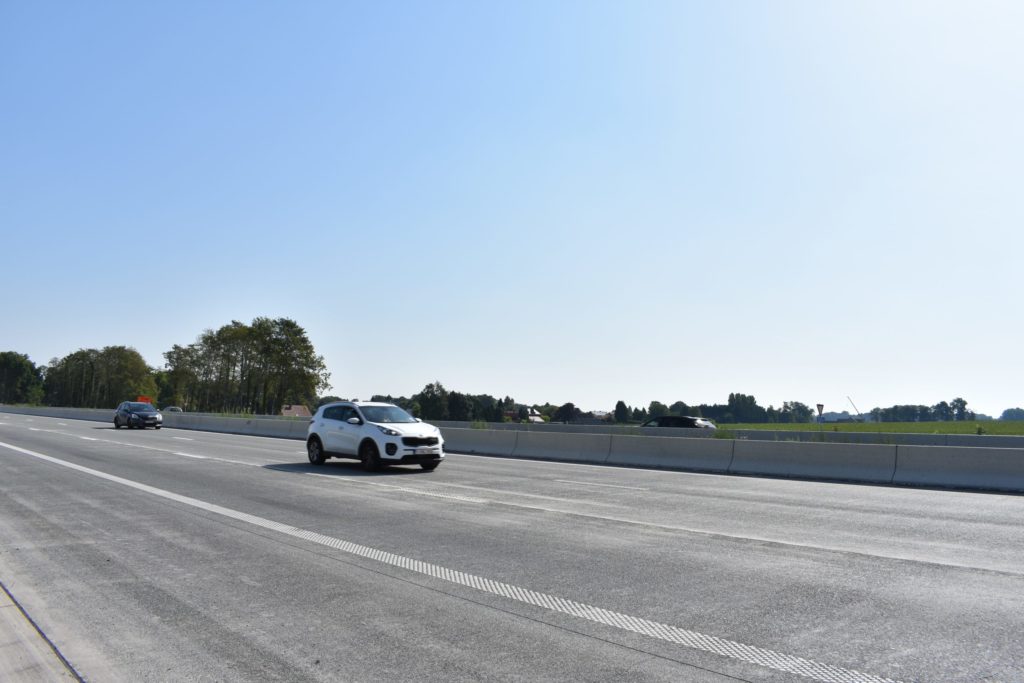EUPAVE advocates for life cycle approach in upcoming TEN-T proposal
16/12/2020
On Wednesday 9th December, EUPAVE and MEP Petar Vitanov held an online EU Debate on “Green Deal: the right choices for a climate resilient and sustainable TEN-T”. The event, held as a webinar, was attended by around 35 participants. It gathered representatives of the public and private sector and of the European Commission.
The event started with words of welcome from Mr. Petar Vitanov, MEP (S&D) and Mr. Stéphane Nicoud, President of EUPAVE.

Views from MEP Petar Vitanov
Mr. Vitanov discussed the right choices for a climate-resilient and sustainable TEN-T. To him, developing the TEN-T core network by 2030 will remain a task of high importance, “road network’s development must also consider the primary priorities related to transport decarbonization, digitalization, and safety”. Indeed, road transport represents a key pillar of the new growth strategy. It aims at transforming the EU into a fair and prosperous society with competitive economy seeking no emissions of greenhouse gases in 2050.
The industry has an important role in tackling climate and environmental-related challenges, “thanks to their characteristics, I am sure that concrete pavements can accelerate the shift to sustainable and smart mobility, considered an essential element of the European Green Deal”.
In his view, to ensure progress towards the achievement of climate neutrality, any transport infrastructure projects financed by the EU must, upon independent assessment, be consistent with:
- the 2030 and 2050 climate objectives and,
- with the EU objectives of high resource- and energy-efficient, climate-neutral, and circular economy.
The assessment of the effects of projects must consider greenhouse gas emissions during their whole life cycle.
He noted the importance to change mentalities for a more sustainable tendering: “while most of the public contracts in the EU are currently awarded based on the lowest price criteria, Europe needs a more sustainable approach and criteria taking into account initial investment and all the costs during the life cycle leading to the most economically efficient decision”.
Welcome from Mr. Nicoud
Mr. Nicoud, president of EUPAVE, started by thanking MEP Petar Vitanov for hosting EUPAVE’s and the speakers of the debate.
He came back on EUPAVE’s annual debates in the European Parliament which have for main goal to put mobility infrastructures at the heart of the debate about the post-carbon era. Mr. Nicoud also expressed that the upcoming revision of TEN-T should also be adapted to the decarbonation objectives set by the European Green Deal.
Regarding TEN-T, the Commission is now collecting feedback from stakeholders to have a new proposal in 2021. EUPAVE will participate and defend that the infrastructures of the future must be more resilient, more sustainable and must have less impact in its environment and to people, “all these aspects have to be considered when designing the public procurement which will materialise this new phase of European infrastructure. We undoubtedly defend that concrete pavement is the solution”.
Interventions from speakers
Mr. Luc Rens, Managing Director of EUPAVE, talked about “Innovative and sustainable tendering for European motorways”. He came back on the Public Procurement Directives and on the EU Green Public Procurement criteria for roads. He insisted on the need of a fair and open competition in pavement market. He also presented EUPAVE’s fact sheets on “high albedo” and “less fuel consumption” (+ links to website).
Mr. Mario Krmek, Asset Manager at ASFINAG Baumanagement GmbH, introduced a circular and long-term approach for Austrian motorways. He started with presenting the Austria motorway network and continued with the history and requirements of concrete pavement recycling. Mr. Krmek came back on ASFINAG’s strategy towards the European Green Deal and their next steps for a reduction of CO2 emission.
Afterwards, Mr. Philippe Chantraine, Deputy Head of Unit B.1 Transport Networks of DG MOVE at the European Commission, introduced the 4 specific objectives of the TEN-T Regulation. He also presented the background of the TEN-T Regulation, what has worked well and what has worked less well. He concluded with the lessons learnt and the next steps, such as the impact assessment.
Ms. Katharina Knapton-Vierlich, Head of Unit G.1 Public Procurement Strategy of DG GROW at the European Commission, closed the round of presentations by a keynote on the priorities of the Commission in Public Procurement Policy.
Following a debate, MEP Petar Vitanov and Mr. Stéphane Nicoud concluded the event.
EUPAVE would also like to thank Mr. Emiliano Alonso for moderating the event.
Presentations:


